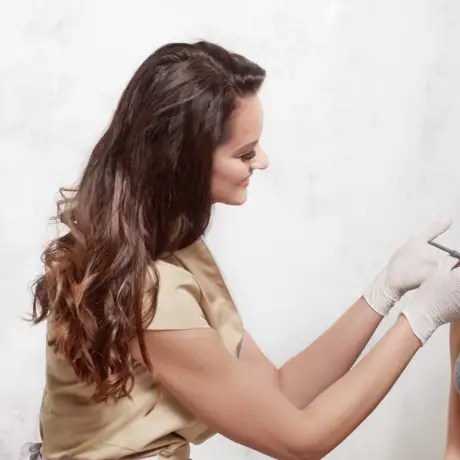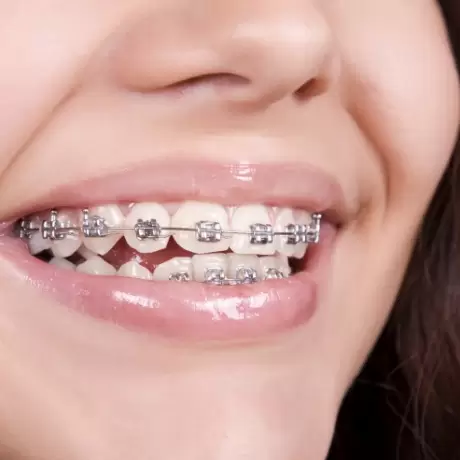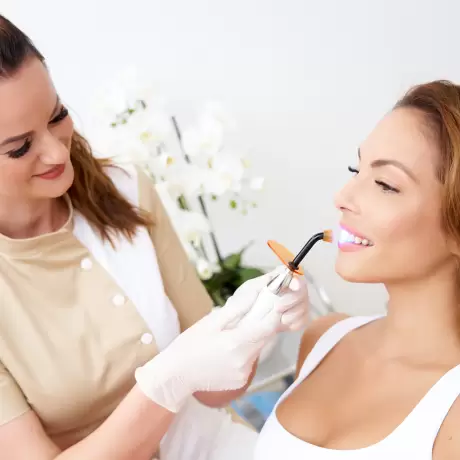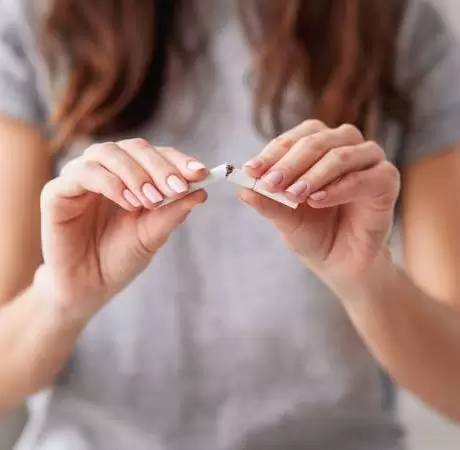Advice and training for children
The youngest also deserve attention and care so that they can always be happy and healthy.
Childhood and adolescence are particular, fundamentally important life periods from the point of view of the present and even more of future health condition. The positive or negative nature of this development period leaves its mark on the whole life of the individual. This is the time when habits are formed and the forms of behaviour unfold, which will be decisive later on. At this time habits are not so fixed, behaviour can be shaped and influenced more easily. The process of tooth replacement which lasts for many years takes place during the school years, approximately between the ages of 6 and 13. However, the decay of the remaining teeth is the most intensive at this age, approximate caries comes about for teenagers. Parodontium is endangered as well, gingivitis becomes more and more forceful, and more and more children have tartar. This is the life period when the originally healthy milk-teeth must be preserved until the time of changing teeth and lay the foundation of the health of the remaining set of teeth for the whole life. This is the time to provide a good prospect for the teeth to remain functional and aesthetically satisfactory for a whole life.
RISK PERIODS DURING THE CHANGING OF TEETH
We have to draw the attention of the adults (parents, teachers, paediatricians) surrounding children to the danger in relation to the breaking through of remaining molars. The breakthrough period of the first and second molars, i.e. the years from 6 to 8 and 11 to 14 are caries risk periods during the school years. The breakthrough period of remaining molars lasts for several months, it could even take one to one-and-a-half year. During this period the formulation of plaque is very intensive in the occlusal surface fissures as these are left out of the normal chewing function and generally cleaning is not appropriate. Therefore special attention must be paid to the cleaning of teeth which are about to break through. Parents must be taught to adopt a special tooth brushing technique, as the surfaces of the teeth cannot be reached by simply moving the toothbrush back and forth. Once the tooth has fitted into the masticatory plane, the occlusal surface can be cleaned more easily, but even then different preventive treatments may be necessary, such as fluoride brushing, antibacterial enamelling or the sealing of fissure.
THE BASIC PILLARS OF CUSTOMIZED PREVENTIVE CONSULTATION
A great advantage of these meetings is that the parents are also present on these occasions. This provides a good opportunity to draw the attention to the responsibility of parents, the positive strength of the family in forming behaviour. At the same time other instructions meant for the children also reach the parents.
During the consultation we talk about the following topics:
- proper oral hygiene, plaque control i.e. the mechanical removal and keeping off of bacterial film
- a balanced diet, the consumption of sweets as rarely as possible, controlling cariogenic foods;
- sensible use of fluorides, optimum provision of fluorides by individual demand;
- application of closing of fissure and other preventive treatments;
- in the case of upper primary school students the harmful effects of smoking and alcohol consumption on health also need to be discussed.
THE DENTAL OBJECTIVES OF WHO AND THE CHARACTERISTICS OF THE HUNGARIAN ORAL HEALTH CONDITIONS
The dental objective of the WHO for 2020 in relation to children aged 6:
- 80% of six-year-olds should have healthy teeth.
27% of children only have gingivitis, a further 34% also has tartar, only the remaining 39% has healthy oral hygiene.
IS IT WORTH TAKING OUR CHILDREN TO THE DENTAL SURGERY FOR THE FIRST TIME?
The breaking forth of our children’s milk teeth is more or less complete by the age of 2 to 2-and-a-half. It is advised to go to a dental surgery already at the time of the first milk tooth breaking forth to discuss cleaning, what we should do and how we should teach and then how we can make our child practice the correct tooth brushing.
There is not always a treatment on the first occasion, but this meeting is an excellent opportunity for the child to become familiar with the surroundings, the equipment in a playful manner. This is when we survey the condition of the little teeth, filter out any development disorders as well as bring the attention of parents to any potential problems, such as the more and more frequently experienced disposition to caries.
It is important that the first meeting with the dentist/dental hygienist should take place when the child does not have any complaints yet. A painless dental check-up of dental cleaning not requiring any treatment is a good opportunity for the child to get to know “auntie” or “uncle” dentist, the consulting room and to receive good impressions. Regular, at least six-monthly dental check-ups assist in forming good doctor-patient relationships and allows the application of preventive methods or the early recognition and cure of diseases.
HOW OFTEN IS IT ADVISABLE TO TAKE CHILDREN FOR A DENTAL CHECK-UP?
The generally accepted recommendation is screening every six month. It is true for both milk-teeth and the remaining teeth just breaking through that they deteriorate very quickly. Once the process of tooth decay starts, the problem should treated as soon as possible in order to protect the child from the unpleasant feeling of toothache.
WHAT ARE THE MOST IMPORTANT MESSAGES?
- The importance of originally healthy milk-teeth should not be underestimated! They must be preserved healthy until the time of changing of teeth. This is important for several reasons: chewing, speech, voice production, aesthetics, reserving space for remaining teeth.
- Not too many sweets! Our children consume twice the recommended amount of sugar. Excessive intake cannot only be harmful for teeth, but it is disadvantageous from the point of view of general health as well.
- Water is best for replenishing liquid. Non-carbonated mineral water, milk and squeezed fruit juices can also be recommended. Soft drinks, syrups contain hidden sugar intake, „luxury calories” and endanger the health of teeth, spoil the appetite and do not quench thirst.
- Eating after tooth brushing in the evening is forbidden, only fresh water is allowed.
- It is desirable to clean the teeth at least twice per day. The toothbrush of young children should have a small head with soft, plastic threads and children’s toothpaste containing fluoride should be used, with a pea-sized quantity to be placed on the toothbrush. The toothpaste should always be portioned by the parent or the carer.

A beautiful smile is the best investment!
Book an appointment for an oral hygiene treatment now!




